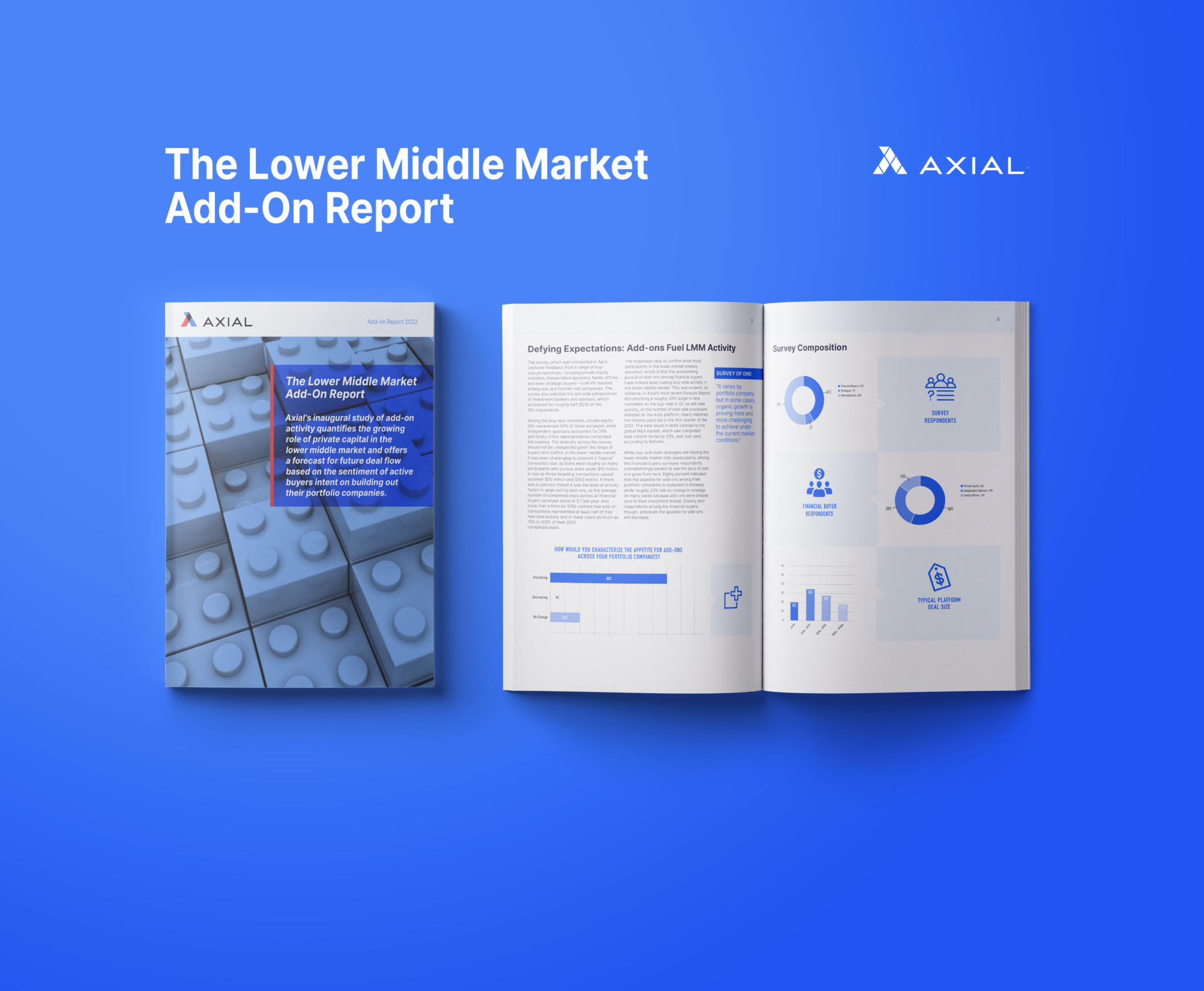
Introducing The Lower Middle Market Add-On Report
A survey of 150 deal professionals across the Axial network documents the extent to which financial sponsors have descended upon…
At Axial’s Summer Summit, held on June 6 in New York City, we surveyed our private equity members to take their pulse on the current deal environment. Forty-five middle market investors shared thoughts on the current exit environment and deal dynamics.
The Exit Environment
Even in a market characterized by historically high valuations and historically low IPOs, almost three-quarters (71%) of the private equity investors we surveyed say the exit environment is positive. Still, 42% of investors say they’ll hold out until next year before selling any of their portfolio companies.
Those that do have an exit in sight believe the buyer is more likely to be a strategic investor (40%) than another private equity firm (33%). Particularly in inflated industries like healthcare, corporate buyers are better able to justify higher prices for these companies due to expected synergies achieved by the deal. (Here are a few tips for PE investors looking to compete with strategics in the marketplace.)
Two-thirds of those who point to the rising appetite of strategic buyers indicate that they expect to do more deals with private companies than publicly traded corporations. We’ve seen this trend play out on Axial, with many private companies joining our network to pursue aggressive acquisition strategies over the next 1-3 years before they consider an exit.
Another 20% of investors say their next buyer will be a fundless or independent sponsor, evidence that this emerging buyer is becoming increasingly active in the middle market. As John Fruehwirth of Rotunda Capital Partners explains, the independent sponsor model “combines the rigor of traditional private equity (investment acumen and portfolio management) with stronger LP investor alignment on several core issues such as fees, carry, and discretion to review each investment opportunity.”
Deal Dynamics
Private equity investors are also warming to the idea that an acquisitive strategy can help them create value within their existing portfolio companies. Sixty-nine percent say they will either deploy more capital into add-on investments this year or do the same amount of platform and add-on investments.
This is part of the reason we’ve seen many middle market investors move down market in terms of their investment targets, giving more looks to smaller companies that can be additive to their current portfolio.
Co-investments have been another trend we’ve been following closely, particularly as we see many private equity investors use our platform to link up with family offices and other PE shops to partner on a deal. Thirty-one percent of investors say they will complete more co-investment deals this year than they did last year. Generalist investors, i.e., those who have a broad industry/sector mandate, are more likely to complete co-investments this year (38%) as compared to their specialist counterparts (20%). (Read more about why GPs and LPs alike are increasingly eager to hop on the co-investment train here. We’ve also written about complications in co-investments, including slower deal cycles and a hostile legal environment).
